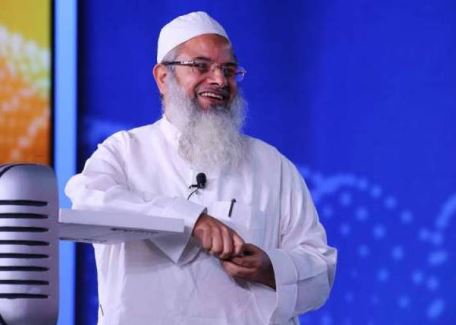The Jamiat Ulama-i-Hind, a prominent Indian Muslim organization, has vehemently denounced what it perceives as the “saffronization” of the education system. In a strongly worded resolution issued after a two-day governing council meeting, the Jamiat accused the central and state governments of imposing practices that violate religious freedom and contradict the beliefs of Muslim students.
Jamiat Challenges Imposition of Religious Practices
At the heart of the Jamiat’s concerns is the mandated inclusion of Surya Namaskar (Sun Salutation), Saraswati Puja (worship of the Hindu goddess of knowledge), and the recitation of shlokas (Hindu hymns) in schools. The organization argues that such practices, along with the requirement for students to wear tilaks (religious marks on the forehead), constitute an infringement on the constitutional right to religious freedom.
The Jamiat maintains that Islam, with its foundation in monotheism, precludes Muslims from participating in practices associated with other religions. The organization views the government’s actions as a blatant disregard for the diverse religious landscape of India and a violation of the principles of secularism enshrined in the Constitution.
Jamiat Defends Madrasas and Criticizes BJP Leaders
The Jamiat also expressed strong disapproval of the negative rhetoric employed by some Bharatiya Janata Party (BJP) leaders against Islamic seminaries, or madrasas. The organization emphasized the crucial role that madrasas play in providing education and moral guidance to underprivileged and marginalized Muslim communities in India. It further highlighted the contribution of madrasas to the preservation of cultural heritage, promotion of religious education, and fostering of patriotism among youth.
Call for Government Action and Madrasa Reforms
The Jamiat has urged the government to cease what it considers provocative actions and respect the religious sensitivities of all citizens. Additionally, the organization has appealed to madrasas to prioritize internal reforms and implement recommendations made by the Standing Committee for the Protection of Madrasas.
This clash between the Jamiat and the government underscores the ongoing debate over the role of religion in education and the delicate balance between religious freedom and secularism in India. The outcome of this controversy could have far-reaching implications for the future of education and communal harmony in the country.
Key Learnings
| Key Point | Description |
|---|---|
| Jamiat Ulama-i-Hind condemns “saffronization” of education. | The organization accuses the government of imposing practices that violate religious freedom. |
| Jamiat challenges imposition of Surya Namaskar, Saraswati Puja, shlokas, and tilaks. | These practices are seen as contradictory to Islamic beliefs and an infringement on religious freedom. |
| Jamiat defends madrasas and criticizes BJP leaders for negative rhetoric. | The organization highlights the vital role of madrasas in education and community development. |
| Jamiat urges government to cease provocative actions and respect religious sensitivities. | The organization also calls for internal reforms within madrasas. |
Soumya Smruti Sahoo is a seasoned journalist with extensive experience in both international and Indian news writing. With a sharp analytical mind and a dedication to uncovering the truth, Soumya has built a reputation for delivering in-depth, well-researched articles that provide readers with a clear understanding of complex global and domestic issues. Her work reflects a deep commitment to journalistic integrity, making her a trusted source for accurate and insightful news coverage.



